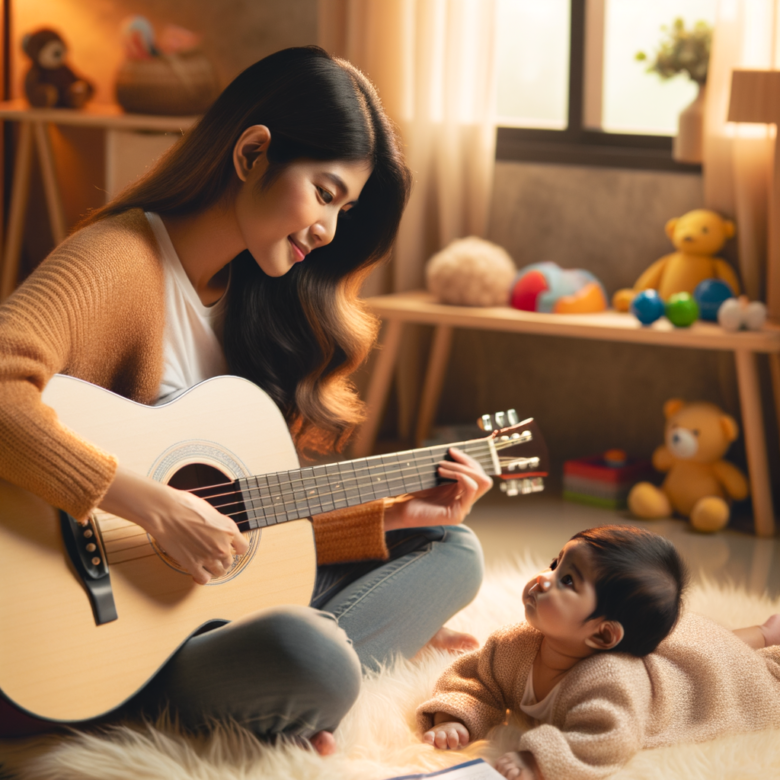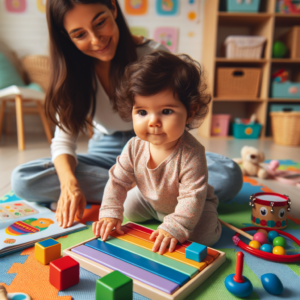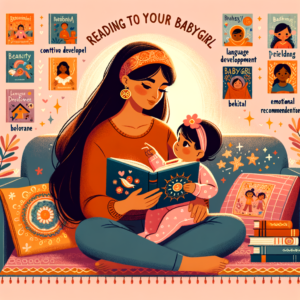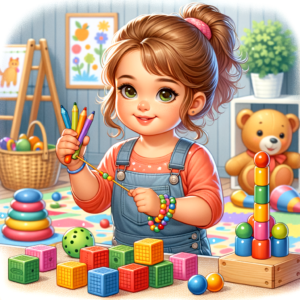Music is a powerful tool for enhancing your babygirl’s cognitive, emotional, and social development. From the earliest days of life, babies respond to melody and rhythm, and incorporating music into your daily routines can have profound benefits. This comprehensive guide will explore how music impacts your babygirl’s development and provide practical ways to integrate music into her life.
The Benefits of Music for Babygirls
- Brain Development
- Stimulates neural connections
- Enhances spatial reasoning
- Language Skills
- Improves phonological awareness
- Expands vocabulary
- Motor Skills
- Encourages movement and coordination
- Develops rhythm and timing
- Emotional Regulation
- Helps soothe and calm
- Promotes emotional expression
- Social Skills
- Facilitates bonding
- Encourages social interaction
- Memory and Attention
- Improves recall abilities
- Enhances focus and concentration
Incorporating Music into Daily Routines
- Lullabies at Bedtime
- Sing soft, soothing songs to establish sleep routines
- Wake-Up Songs
- Start the day with upbeat, cheerful tunes
- Diaper Change Ditties
- Use short, playful songs during diaper changes
- Mealtime Melodies
- Sing about foods or use gentle background music during meals
- Bath Time Ballads
- Incorporate water-themed songs during bath time
- Playtime Tunes
- Use upbeat songs to encourage movement and dance
Age-Appropriate Musical Activities
0-3 Months
- Sing lullabies and gentle songs
- Play soft classical music
- Use musical mobiles
3-6 Months
- Introduce simple nursery rhymes with hand movements
- Use rattles and other musical toys
- Play different genres of music
6-12 Months
- Encourage clapping or tapping to rhythms
- Introduce simple musical instruments (shakers, drums)
- Sing action songs (e.g., “Head, Shoulders, Knees, and Toes”)
12-18 Months
- Engage in finger plays and action songs
- Encourage dancing and movement to music
- Introduce more complex musical instruments
Types of Music to Explore
- Classical Music
- Stimulates brain development
- Recommended: Mozart, Bach, Beethoven
- Nursery Rhymes
- Enhances language development
- Builds cultural literacy
- World Music
- Exposes babygirl to different cultures and sounds
- Nature Sounds
- Calming and soothing
- Enhances environmental awareness
- Children’s Songs
- Often interactive and educational
- Builds vocabulary and concepts
- Instrumental Music
- Allows focus on rhythm and melody without lyrics
Creating a Musical Environment
- Musical Toys
- Provide age-appropriate instruments and sound-making toys
- Background Music
- Play gentle music during playtime or quiet activities
- Music Classes
- Consider parent-child music classes for social interaction
- DIY Instruments
- Create simple instruments from household items (e.g., rice shakers)
- Music Books
- Incorporate books that encourage singing or have musical themes
The Role of Movement in Musical Development
- Dance Together
- Hold your babygirl and sway to music
- As she grows, encourage free movement to rhythms
- Action Songs
- Use songs that incorporate movements (e.g., “Itsy Bitsy Spider”)
- Rhythm Games
- Clap, tap, or march to different beats
- Musical Freeze Dance
- For older babies, play stop-and-go games with music
Frequently Asked Questions
Q: Can music really make my babygirl smarter? A: While music enhances cognitive development, it’s not a guarantee of higher intelligence. It does, however, support overall brain development and learning.
Q: How loud should the music be? A: Keep volumes moderate. If you need to raise your voice to be heard over the music, it’s too loud.
Q: Is it better to play recorded music or sing live? A: Both have benefits. Live singing provides personal interaction, while recorded music offers variety. A mix of both is ideal.
Q: When is the best time to start music education? A: It’s never too early! You can start playing music and singing to your babygirl from birth.
Conclusion
Incorporating music into your babygirl’s life is a joyful and effective way to support her cognitive, emotional, and social development. From soothing lullabies to energetic dance sessions, musical experiences provide a rich tapestry of learning opportunities.
Remember, you don’t need to be a skilled musician to share the gift of music with your babygirl. Your voice is the most beautiful sound to her ears, and your enthusiasm for music will be contagious. Sing, dance, and play together without worrying about perfection – it’s the shared experience and joy that matter most.
As you explore the world of music with your babygirl, stay attuned to her responses. Notice which songs calm her, which ones make her smile, and which ones inspire movement. Use these observations to create a personalized musical environment that supports her unique developmental journey.
By making music a regular part of your babygirl’s life, you’re not just enhancing her cognitive skills – you’re also creating beautiful memories, fostering creativity, and laying the foundation for a lifelong appreciation of music. So turn up the tunes, grab your babygirl, and let the musical adventure begin!



